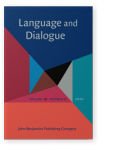“A very good dialogue”?
The oral consideration stage in UN human rights monitoring
This article builds on previous research on the communicational practices of the United Nations human rights
monitoring system (Wallace 2017). Treaties such as those responsible for women’s and
children’s rights lack direct enforcement mechanisms, so interest falls on the means by which treaty monitoring committees can
encourage state compliance. The proceedings are bookended by writing (state reports and committee concluding observations), the
focus of my earlier research. However, there is also an oral component, invariably characterized by the committees (but less
frequently by the states) as “constructive dialogue” where the objective is “to assist and not to judge.” I explicate the
structure and practices of these proceedings and find much that is justifiable, given the communicational context, but also some
potential for reconsideration.
Article outline
- 1.Introduction
- 2.A preliminary note on dialogue
- 3.The extent of dialogue
- 3.1Diplomatic register
- 3.2Terminological superfluity
- 3.3Absence of reasoning
- 3.4Set speaking roles
- 3.5Relations of antagonism
- 3.5.1Name of ministry
- 3.5.2Age of employment
- 3.5.3Non-specificity
- 4.Discussion and concluding remarks
-
References
References (18)
Bhatia, Aditi
2006 “
Critical Discourse Analysis of Political Press Conferences.”
Discourse and Society 17 (2): 173–203.


Committee on the Elimination of Discrimination against Women, Meetings 1546 and 1547 with Delegation from Kenya
2017 November 2.
UN Web TV. Available at:
[URL] (Accessed 28 May 2019).
Committee on the Elimination of Discrimination against Women, Meetings 1616 and 1617 with Delegation from New Zealand
2018 July 12.
UN Web TV. Available at:
[URL] (Accessed 28 May 2019).
Committee on the Rights of the Child
2003 Concluding Observations of the Committee of the Rights of the Child: New Zealand (
CRC/C/15/Add. 216). Geneva: United Nations.
[URL]
Committee on the Rights of the Child, Meetings 2138–2140 with Delegation from New Zealand
2016 September 15–16.
UN Web TV. Available at:
[URL] (Accessed 28 May 2019).
Committee on the Rights of the Child
2016 Concluding Observations on the Fifth Periodic Report of New Zealand. Geneva: United Nations. Available at
[URL] (Accessed 28 May 2019).
Committee on the Rights of the Child, Meeting 2168 with Delegation from Democratic Republic of Congo
2017 January 18.
UN Web TV. Available at:
[URL] (Accessed 28 May 2019).
Committee on the Rights of the Child, Meeting 2296 with Delegation from Norway
2018 May 23.
UN Web TV. Available at:
[URL] (Accessed 19 May 2019).
Committee on the Rights of the Child
2014 November 20. UN Web TV. “
Conversation on the Rights of the Child: Revealing its Vision, Pursuing its Mission”. Available at:
[URL] (Accessed 28 May 2019).
Drew, Paul and John Heritage
1992 Talk at Work: Interaction in Institutional Settings. Cambridge: Cambridge University Press.

Joas, Hans
2013 The Sacredness of the Person: A New Genealogy of Human Rights. Washington DC: Georgetown University Press.

Marchart, Oliver
2018 Thinking Antagonism. Edinburgh: Edinburgh University Press.

Ministry of Social Development
2019 “
UNCROC Reporting.” Available at:
[URL] (Accessed 28 May 2019).
Sloterdijk, Peter
1987 Critique of Cynical Reason (translated by
Michael Eldred). Minneapolis: University of Minnesota Press.

United Nations Office of the High Commissioner of Human Rights
n.d. “
OHCHR Treaty Body Capacity Building Programme.” United Nations PowerPoint presentation. Available at:
[URL] (Accessed 20 November 2019).
Weigand, Edda
2010 “
Language as Dialogue.”
Intercultural Pragmatics 7(3): 505–515.


Cited by (1)
Cited by 1 other publications
Hallgren, Lars, Hanna Bergeå, Emily Montgomerie & Lotten Westberg
This list is based on CrossRef data as of 5 july 2024. Please note that it may not be complete. Sources presented here have been supplied by the respective publishers.
Any errors therein should be reported to them.
